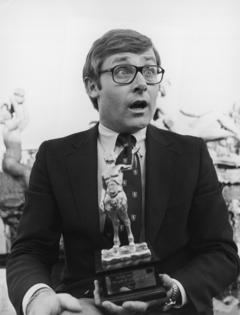Commentary: 'Jaws' the novel was published 50 years ago. The movie is far superior. Here's why
Published in Entertainment News
Next summer will be a big one for fans of the 1975 blockbuster film “Jaws.”
It will mark the 50th anniversary of the movie many believe started the summer blockbuster phenomenon and scared beachgoers just about everywhere.
However, this summer marks the 50th anniversary of the novel of the same title, written by Peter Benchley, about a great white shark that terrorizes a beach community on Long Island.
That was a hit in the literary circles. The first publication was in February 1974, and it remained on the bestseller list for nearly a year.
Film producers Richard Zanuck and David Brown read the novel and purchased the film rights. The rest is movie history: Steven Spielberg directed, and Roy Scheider (Martin Brody), Robert Shaw (Quint) and Richard Dreyfuss (Matt Hooper) starred in roles that defined their acting careers.
The novel and the film had many similarities, but as with many screenplays that originated from a novel, it led to a finished product on screen that is very different from the written word.
In this case — many will argue — the film is a much better version of the story.
For those who haven’t read “Jaws,” the differences are as big as the bite radius of the 25-foot shark. Here are the most notable:
Mafia sub-plot
The biggest plot hole from the film is Mayor Vaughan (Vaughn in the film) and his insistence on keeping the beaches open, despite a man-eating shark roaming off the shores of Long Island (later changed to the fictional Amity Island in the film). While “summer dollars” — as Vaughn insists — is the motivation in the film, the novel adds a more plausible motive. It’s discovered Vaughan has ties to the mafia, who are pressuring the mayor to keep the beaches open to protect the value of Amity’s real estate. It’s also mentioned the mafia has invested a large amount of money in Long Island property. While the mafia sub-plot would have explained Vaughan’s motives more realistically, the mayor (played by Murray Hamilton) in the film had charisma and a presence that was impossible to ignore on the big screen.
Affair between Matt Hooper and Ellen Brody
This subplot was jarring, and anyone reading Benchley’s novel should go in with a warning that the love affair between Matt Hooper — a shark expert called into town to help with their shark problem — and Ellen Brody is graphic in detail. The guess here is the producers and Spielberg couldn’t eliminate this storyline fast enough. In the novel, Chief Martin Brody’s wife, Ellen, dreams of her past affluent lifestyle before her marriage. In another odd twist, Ellen dated Hooper’s older brother before getting married. When Matt arrives in town, Ellen then pursues him, and an afternoon affair ensues. Afterward, Martin suspects the affair between Ellen and Matt.
Hooper’s fate
When Chief Brody, Hooper and local shark hunter Quint set out on Quint’s boat, the Orca, to hunt and kill the shark, tension builds among the three. Unlike with the film, in which Hooper and Brody become allies, the novel builds on the tension between the two. When Hooper descends into the water to fight the shark in a cage, it attacks Hooper by demolishing the cage and devours Hooper. Meanwhile, Brody — while horrified — senses relief with Hooper out of the picture. In the film, Hooper survives the attack and reunites with Brody as the credits are about to roll. The dark subplots of the affair and tension between Martin and Hooper would have made for a much different film — and likely not for the better.
Quint’s motivation
In the film, Quint’s speech about surviving the World War II USS Indianapolis disaster and subsequent shark attacks serves as a motivation for his hatred of sharks. There is no mention of Quint’s speech in the novel. This is a huge win by Spielberg and Co.
Quint’s fate
In the film, some might note the death of Christine Watkins in the film's opening or the first true appearance of the shark — which prompts Brody’s famous line, “You’re gonna need a bigger boat” — as their favorite scenes. For others, it’s Quint’s unforgettable and gruesome death, as he’s swallowed by the shark, which has jumped out of the water and onto the stern of the Orca. In the novel, there is no such moment surrounding Quint’s death. After plunging a harpoon into the shark, the rope attached to the harpoon is tangled to Quint’s foot, and he is dragged into the ocean’s depths by the shark and drowns. Advantage: Spielberg and the filmmakers for their take on Quint's demise.
Chief Brody and the killing of the shark
The magic of “Jaws” the movie is the tension throughout, and especially in the final minutes when Brody — who admits to his fear of the water — is the last man standing with the Orca. Of course, anyone who has seen the film knows the climax. Brody, armed with a rifle, shoots at the shark, which has an oxygen tank wedged in his mouth (put there by Brody moments earlier while fending off the predator), and blows it to pieces. It’s a drastic and different climax from the novel's. Benchley hated the switch, so much so that he was told to leave the set while arguing about it. Science experts have also debunked the likelihood of a gunshot exploding an oxygen tank. None of that mattered, as Spielberg’s climax is now movie history. Moviegoers in 1975 cheered. Readers of the novel were given this: Brody, floating on a seat cushion in the ocean, spots the shark approaching. Fearing that death awaits, Brody closes his eyes, but just as the shark approaches, it dies, having succumbed to the harpoon wounds inflicted by Quint. Brody watches the shark sink and then paddles back to shore.
The verdict
While Benchley’s novel started the “Jaws” phenomenon, the film took it to an entirely different level. “Jaws” the novel reportedly sold 20 million copies from its release in February 1974 to June 1975m but it had its critics. The dark tones of the mafia and Hooper-Ellen Brody affair subplots were viewed as negatives. “Jaws” the movie became the highest-grossing film ever in the summer of 1975 — until “Star Wars” overtook it in 1977. Critics of the book also noted the main characters were not developed, while critics of the movie praised the development of the main characters. Hollywood is the big winner.
________
©2024 The News-Herald (Willoughby, Ohio). Visit The News-Herald (Willoughby, Ohio) at www.news-herald.com. Distributed by Tribune Content Agency, LLC.
















Comments